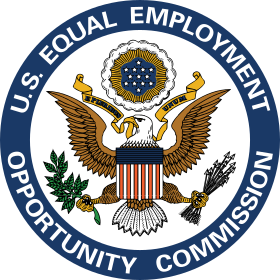
| Entities | |
| Topics and Issues | Background checks (71) |
In January 2023, the EEOC’s proposed a Strategic Enforcement Plan noting its subject matter priorities for Fiscal Years 2023-2027. The priorities included consideration of automated technology in employment screening. CDIA filed a comment in connection with the proposed SEP.
-
- Eliminating Barriers in Recruitment and Hiring
The EEOC will focus on recruitment and hiring practices and policies that discriminate against racial, ethnic, and religious groups, older workers, women, pregnant workers and those with pregnancy-related medical conditions, LGBTQI+ individuals, and people with disabilities. These include:
-
- the use of automated systems, including artificial intelligence or machine learning, to target job advertisements, recruit applicants, or make or assist in hiring decisions where such systems intentionally exclude or adversely impact protected groups;
- screening tools or requirements that disproportionately impact workers based on their protected status, including those facilitated by artificial intelligence or other automated systems, pre-employment tests, and background checks.
. . .
1. Addressing Selected Emerging and Developing Issues The EEOC will continue to prioritize issues that may be emerging or developing, including issues that involve new or developing legal concepts or topics that are difficult or complex. The agency is uniquely suited to address these issues given the EEOC’s research, data collection, receipt of charges in the private and public sectors, adjudication of complaints and oversight in the federal sector, and ongoing engagement with stakeholders.
. . .
The EEOC will focus on employment decisions, practices, or policies in which covered entities’ use of technology contributes to discrimination based on a protected characteristic. These may include, for example, the use of software that incorporates algorithmic decision-making or machine learning, including artificial intelligence; use of automated recruitment, selection, or production and performance management tools; or other existing or emerging technological tools used in employment decisions.
The SEP starts with the following overarching theme:
This SEP updates and refines the EEOC’s subject matter priorities to reflect progress in achieving the EEOC’s vision of fair and inclusive workplaces with equal opportunity for all, while also recognizing the significant challenges that remain in making that vision a reality. The tragic killing of George Floyd, Breonna Taylor, and so many other Black and brown people remain a painful reminder of systemic racism. The COVID-19 pandemic and its economic fallout continue to disproportionately impact people of color and other vulnerable workers, exposing and magnifying inequalities in our society. And high-profile incidents of bias and violence based on race, religion, national origin, and gender have impacted communities across the country—including Black grocery shoppers and workers in Buffalo, NY; Taiwanese churchgoers in Orange County, CA; patrons at an LGBTQI+ club in Colorado Springs, CO; and Jewish synagogue members in Pittsburgh, PA, among others. While these deep-rooted problems extend far beyond the workplace, the EEOC is committed to doing our part to address systemic discrimination in employment. Addressing inequality in the workplace is a vital step in the fight for justice and equality. The ability to make a living, support a family, and be respected in the workplace based on an individual’s skills and experience are critical components of what it means to be human and to enjoy the dignity and sense of self-worth that every individual deserves.